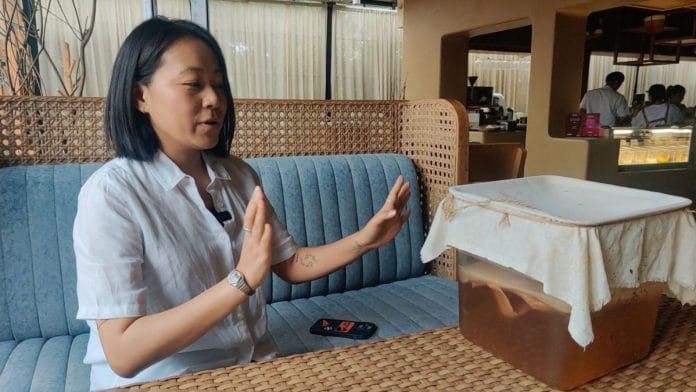Gurugram: When Geetika Rai and her circle of fellow mothers meet up for lunch at Gurugram’s Omo Café, fermented fizz is a big part of it. They’re chasing not a grapey high but gut health with the kombucha line-up, never mind that it costs about Rs 400 a pop here.
“Kombucha is my new Coca Cola,” laughed Rai outside the Sector 28 café, holding her 4-year-old toddler. “Good for the gut, hence great for the skin and for the waist.” The array of in-house brews here includes orange and ginger, pineapple and chilli, apple and cinnamon.
Rai’s love affair with kombucha began last year in Adelaide and New York. The fermented tea drink has roots in China, became a health craze in Japan and the West, and now it’s bubbling up in India. It essentially tastes like a cross between champagne and vinegar but is endlessly adaptable. Indian brands are giving it a ‘desi nushka’ spin, from Dr Booch’s tulsi to Bombucha’s mango-turmeric to Sbooch’s rasam, which won best kombucha at the 2025 London Beer Competition, beating entries from 40 countries. Headlines are calling it the “ultimate detox drink” and a “gut health” champion. Celebrities like Malaika Arora, Suniel Shetty and Jacqueline Fernandez have backed its probiotic powers.
Kombucha’s ascent ties into a bigger trend: India’s booming gut health market. It has doubled in the last five years from Rs 1,016 crore in 2021 to Rs 2,070 crore in 2025, according to the India Brand Equity Foundation (IBEF). Other market estimates are even higher. The space is crowded with probiotic powders, buttermilks, yoghurts and chewables, with kombucha commanding only a fraction of the market— Rs 70-80 crore, according to beverage entrepreneurs.
This isn’t a mass-market drink. It’s a craft product. Our kombucha isn’t just another thirst quencher. It is supposed to be savoured in a wine glass
-Achintya Anand, founder of Krishi Cress
So far, it largely appeals to a small group of affluent, Westernised young Indians who look for a ‘sexier’ alternative to kanji and buttermilk and don’t mind the price tag, which starts at around Rs 100 for a 200 ml bottle.
“Kombucha is a fad, much like Greek yoghurt,” said independent market researcher Arvind Singhal. “If a pack of buttermilk costs Rs 10, why would the average consumer spend Rs 100 on Kombucha? That’s ten packs of buttermilk for the price of one Kombucha. Even with rising disposable incomes, the prevailing consumer mindset is still about ‘getting more for less’.”
But brewers insist that kombucha has plenty going for it. It doesn’t spoil in a week like kanji or kokum, its wine-like taste taps into the sober-drinks trend, and it’s a natural addition to India’s own long history of fermentation.
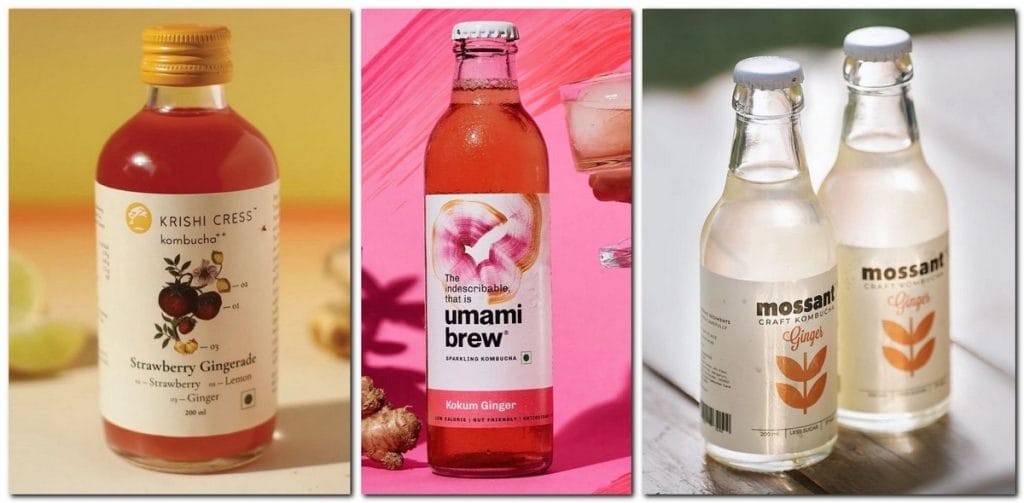
Also Read: Coffee is an old trend. Delhi-NCR youth are obsessed with matcha now
Kombucha class wars
A glass vat of warm golden liquid fizzes gently under a fine mesh at Ananda Greens farmhouse in Chhatarpur. This tea-turning-into-kombucha belongs to Achintya Anand, founder of the agri startup Krishi Cress, which now sells kombucha along with organic veggies and microgreens to NCR customers.
This jar sits on his office desk. But his storage space, currently under renovation, houses over 100 similar vats fermenting 700 litres of the probiotic ‘elixir’ every month. From lavender and strawberry to lemongrass, Japanese mint and borage, Anand has experimented with dozens of ingredients. Each 200 ml bottle sells for Rs 280, which, he insists, is perfectly reasonable.
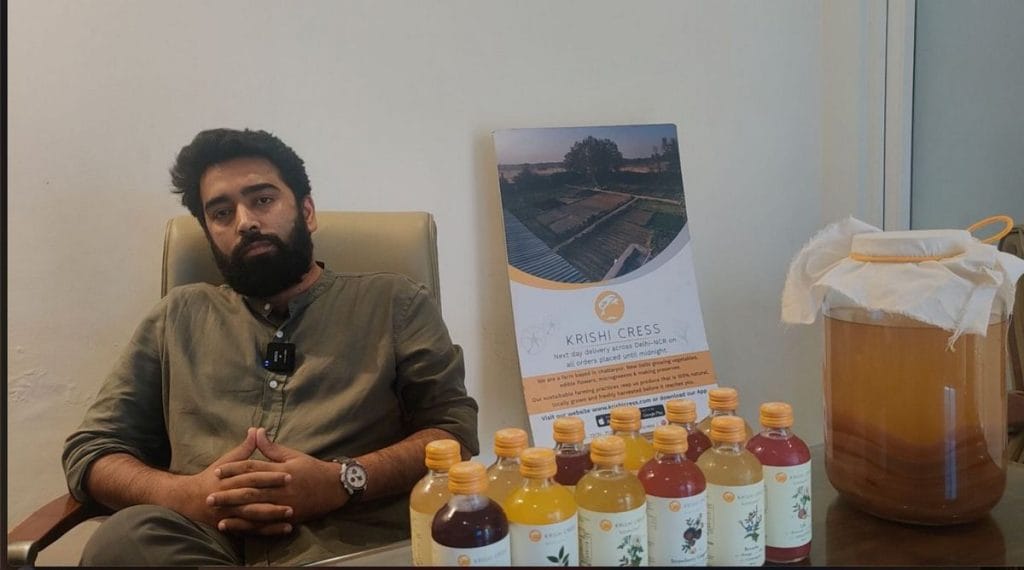
“This isn’t a mass-market drink. It’s a craft product. Our kombucha isn’t just another thirst quencher. It is supposed to be savoured in a wine glass,” said the 32-year-old Delhiite, who comes from a family of hospitality entrepreneurs.
Anand’s bottles sell at nearly three times the price of other ‘craft’ brands. Bengaluru’s Mossant by Adithya Kidambi retails at Rs 99 for 200 ml. Mumbai’s Bombucha by Nitin Gandhi offers 500 ml for Rs 260. Pune’s Umami Brew, run by Cyriac Thomas, sells 250 ml at Rs 160.
Despite the huge difference in price, the basic preparation of kombucha is essentially the same across brands. Green or black tea is brewed with sugar, after which comes the star of the show—SCOBY, short for Symbiotic Culture of Bacteria and Yeast. This jelly-like pancake floats on top of the brew and starts the fermentation.
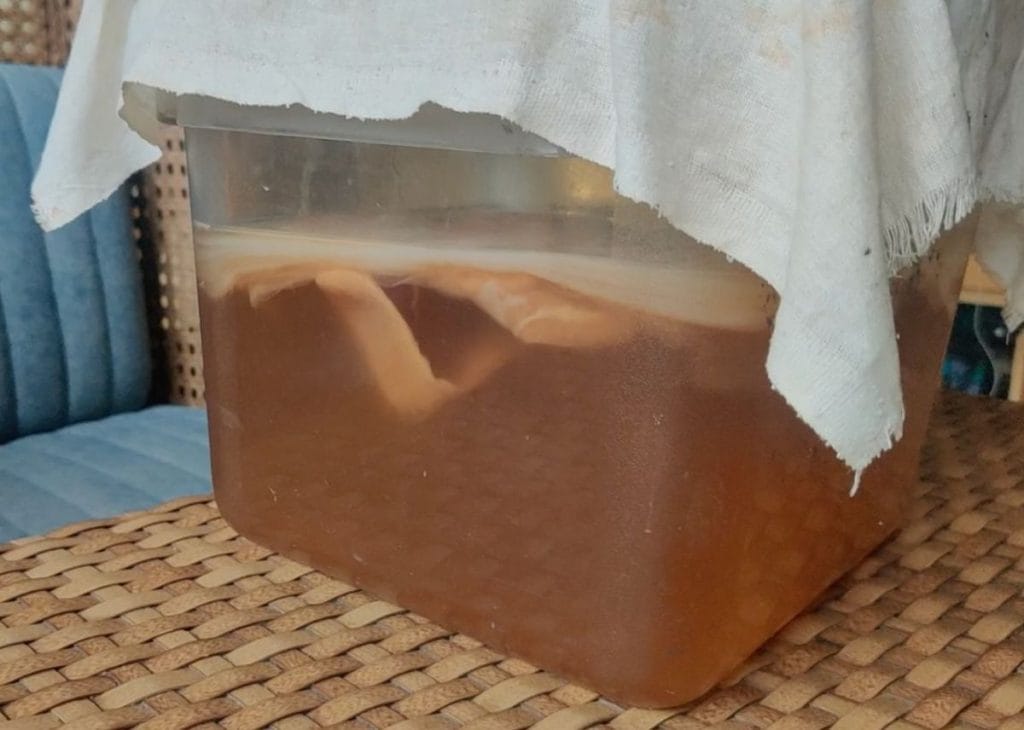
Over the next 7 to 10 days, or sometimes longer depending on the flavour, the SCOBY eats through the sugar and turns the tea into a tangy, fizzy probiotic drink. Once the base is ready, flavourings are added and the mixture is then left to ferment a few more days before bottling.
Connoisseurs like Anand have their own lexicon of purity and provenance when it comes to kombucha. Thumping the table, he declared no one in India has cracked how to make authentic kombucha cheaply.
“The kombucha available at a cheaper price and a higher shelf is for sure pasteurised,” he said. “And after pasteurising, the probiotic goodness is gone. The so-called kombucha becomes iced tea.”
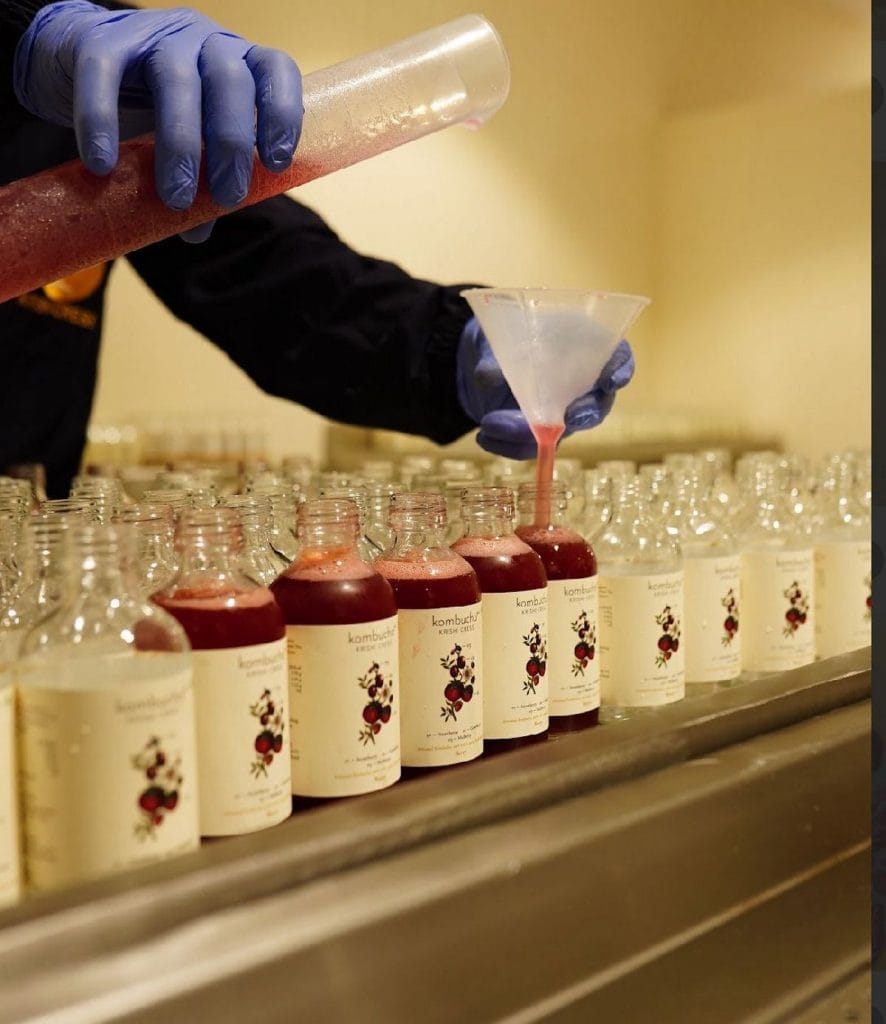
Adithya Kidambi, who co-founded Mossant Fermentary with Shishir Sathyan in 2019, disagrees. He credits scale for keeping prices low. They brew 1,000 litres at a time. At his facility in Bengaluru’s Vasanth Nagar, the drink is passed through fine mesh and micron filters to remove yeast, bacteria and SCOBY strands. This helps slow down fermentation after bottling and extends shelf life by staving off over-carbonation.
“It’s filtered, not pasteurised,” said the graduate of Le Cordon Bleu, Sydney.
And then there are ‘exclusive’ makers like Omo House. Its brews are among priciest in Delhi NCR, retailing at Rs 395 plus taxes for 300 ml.
“Every batch, that is 20 litres, gets sold out within two weeks,” said brand head Grace Muivah.
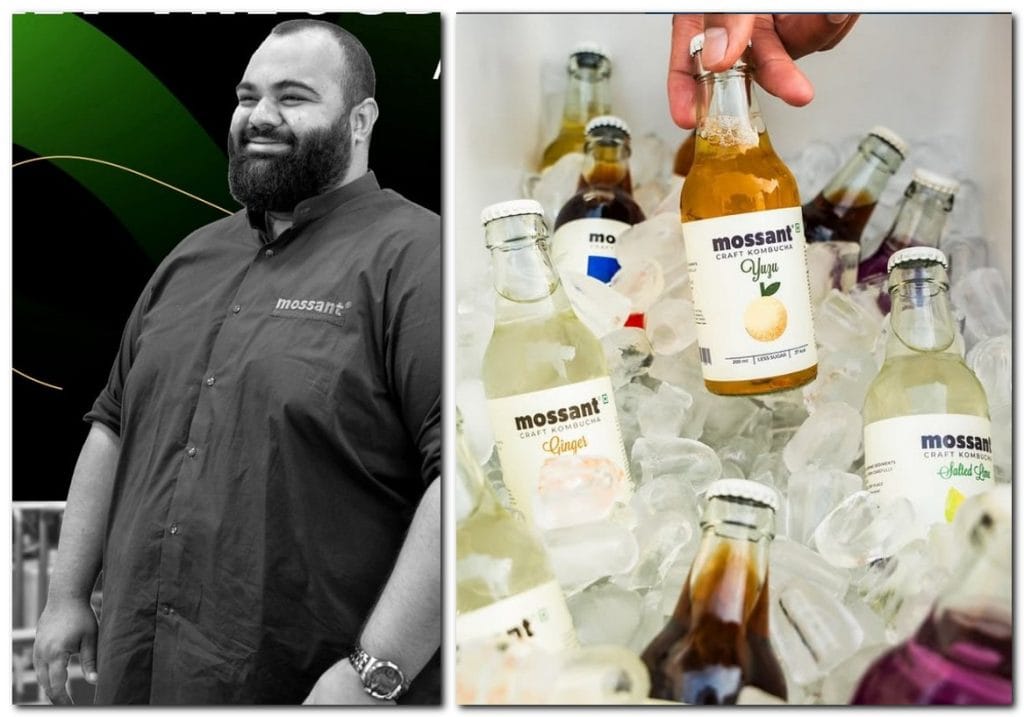
Home brews go pro
For some kombucha entrepreneurs, it started as a health kick or hobby.
In 2015, Nitin Gandhi was growing tired of the grind at his Mumbai restaurant, The Curry House. A year later he sold it off and kombucha entered his life— not as a business idea but a hobby to beat his soda addiction.
Being a marathon runner and health conscious, Gandhi began fermenting kombucha at home, experimenting with flavours like mango-turmeric, beet-pomegranate, chamomile-date, and hibiscus-lime. Then one day, in January 2017, he decided to share the spoils at Bandra’s Farmers Market. Every bottle sold out on day one and so began his business Bombucha. It now enjoys a turnover of Rs 5 crore, with a presence across India, from Chandigarh and Chennai to Kolkata and Ahmedabad.
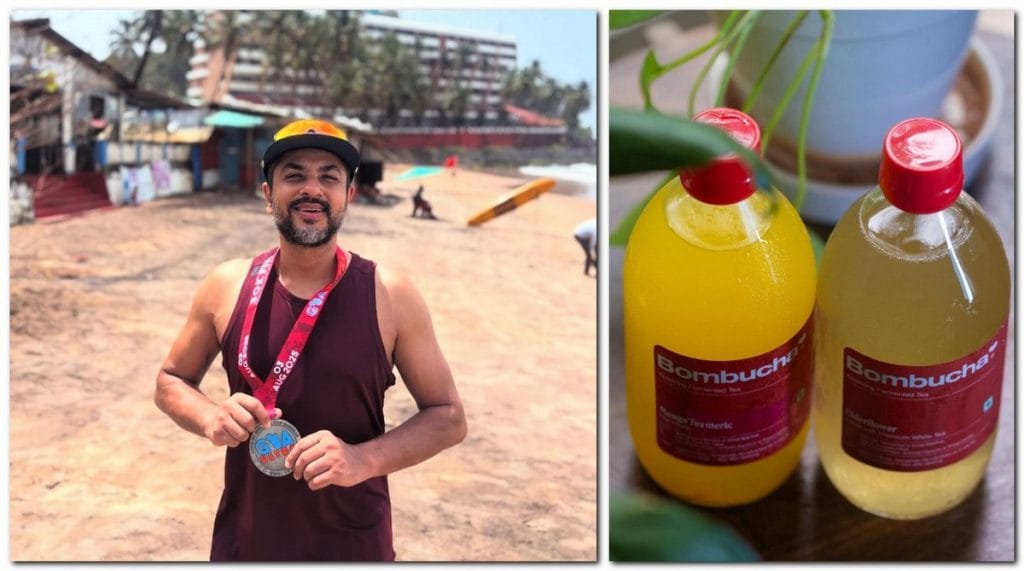
“The market is growing at a slow but consistent pace,” said Gandhi, whose kombucha has a shelf life of four months.
Another player, Pune-based Umami Brew, promises an even longer shelf life — 12 months at room temperature. Founder Cyriac Thomas said it’s unpasteurised but was tight-lipped about how it lasts so long.
“We did extensive R&D and used some smart innovation to crack it,” said the former financial advisor and filmmaker.
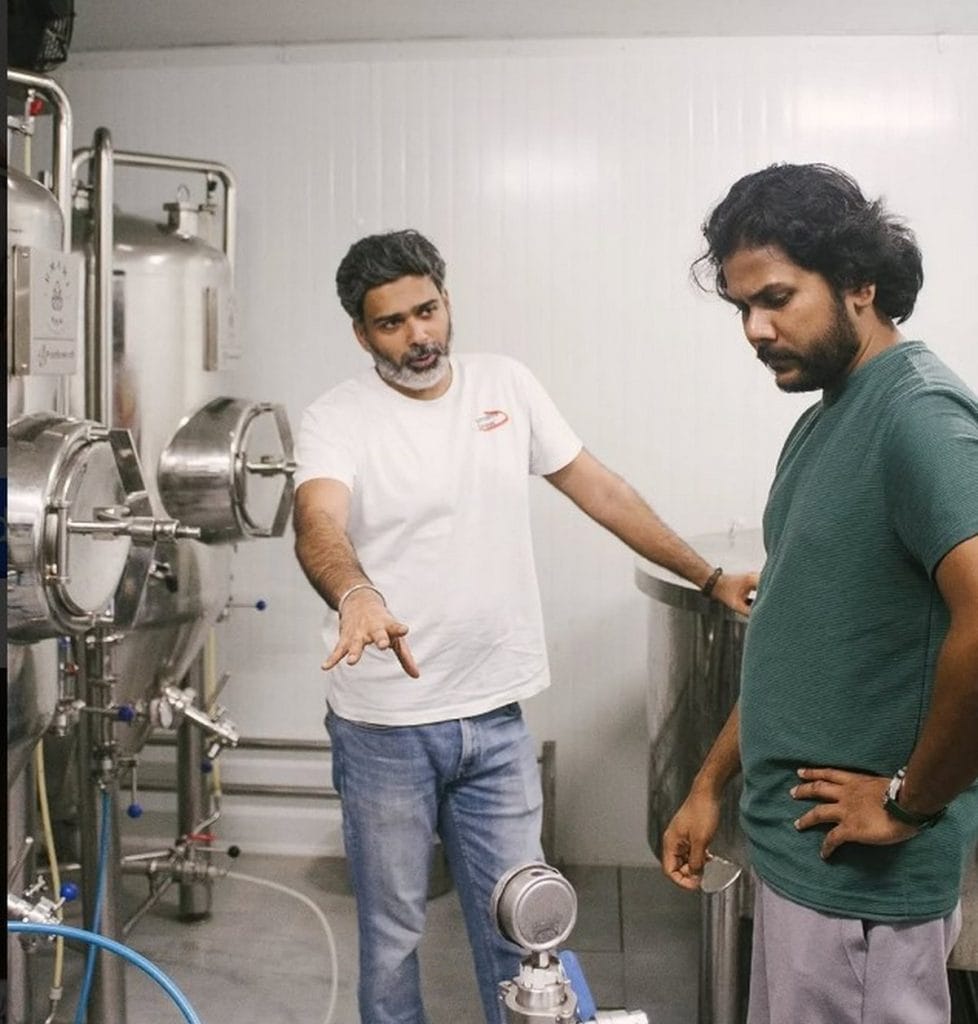
Thomas first tasted kombucha in Eastern Europe and Russia, where it struck him as “a tangy, effervescent tea with a surprising kick of wellness”.
Like Gandhi, he started brewing his own kombucha to overhaul his unhealthy eating and drinking habits. Soon it transformed into a full-blown passion and mission to make tasty, clean kombucha.
From a five-acre farm in Pune, his bootstrapped company began in August 2019 with Rs 2 lakh investment and registered Rs 4 lakh turnover within three months.
While most other brands pitch kombucha as a health drink, Umami Brew cites ‘taste’ as their USP. The sweetness and tang are tweaked for the Indian palate, with variants such as kokum ginger and apple-cinnamon to kefir, jun, and beetroot kvass. Thomas wants his drinks to appeal to customers who still enjoy sugary, fizzy drinks even if they know it’s not the best choice.
“In India, taste is king,” he said. “The moment you lead with ‘health’, people assume it’s going to be bland or boring. Hence, we call ourselves a delicious, refreshing beverage.”
Kanji vs kombucha
Kombucha is a divisive topic in the F&B industry. Celebrity chef Manish Mehrotra put it on the menu during his Indian Accent days in Delhi but got rid of it in five months.
“I hardly remember any customer ordering it. The drink was just getting wasted,” recalled Mehrotra, who stepped down as Indian Accent’s culinary director last year. He calls kombucha “purely gimmicky” and is sceptical about its health benefits.
If a pack of buttermilk costs Rs 10, why would the average consumer spend Rs 100 on Kombucha? That’s ten packs of buttermilk for the price of one Kombucha. Even with rising disposable incomes, the prevailing consumer mindset is still about ‘getting more for less’
-Arvind Singhal, independent market researcher
But kombucha loyalists and brewers beg to differ, insisting the fermented tea has stood the test of time for over 2,000 years.
Anand recalls his uncle brewing kombucha 30 to 40 years ago. And food historian and MasterChef India Season 5 contestant Sadaf Hussain points to how kombucha syncs naturally with India’s own fermentation culture.
“There are mentions of soma or som ras in ancient texts. This is often mistaken for alcohol, but it was essentially a fermented drink,” he said.
Hussain reeled out examples of fermentation in India, from khamiri roti and panta bhat to his father making vinegar at home.
“Kombucha is just another form of vinegar. The difference is the use of SCOBY,” he added.
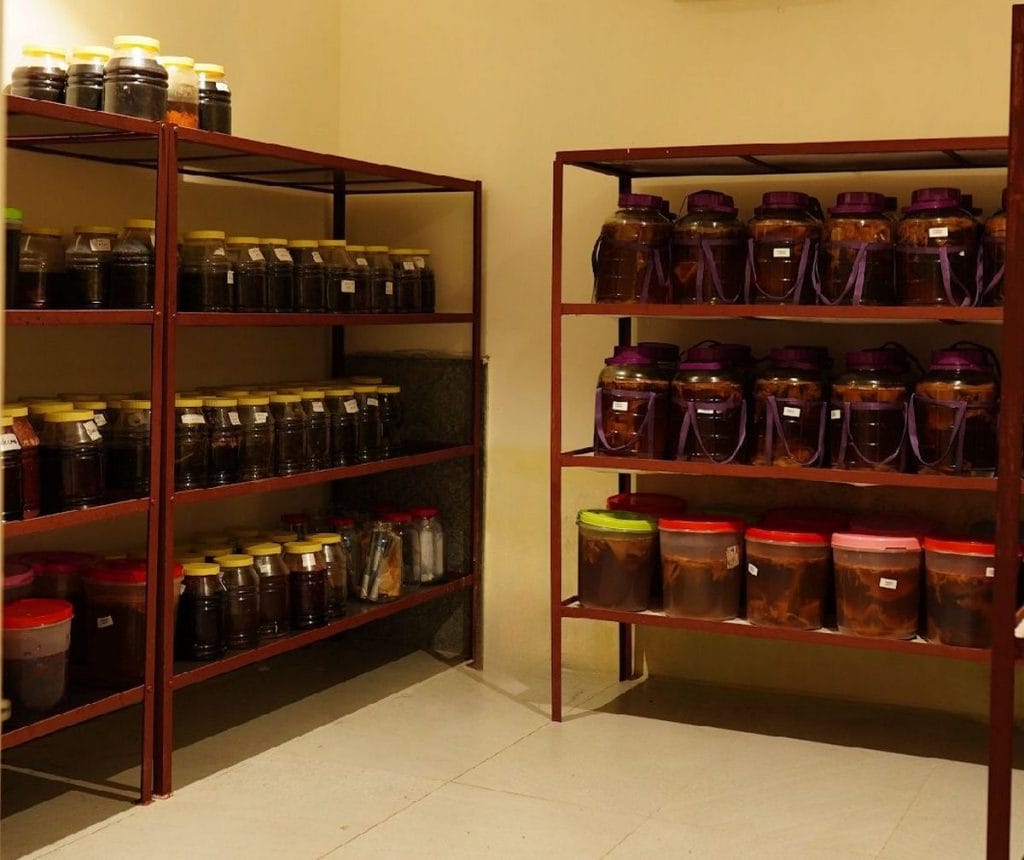
Traditional fermented beverages like kanji and kokum have been home kitchen staples for generations, but spoil fast, which is why they were never commercialised. Made with carrots and beetroot, kanji has to be consumed within days. And while it’s inexpensive, the process demands time, care, and attention. The appetite for fermented drinks, though, has always been there—and kombucha is filling the gap for some.
“Our grandmother made kanji when we were kids, but now with nuclear families and hectic schedules, no one has the time,” said kombucha aficionado Rai. “Fermentation might seem simple, but it needs patience and a lot of watching.”
The touch of sophistication doesn’t hurt either.
Also Read: Delhi-NCR restaurants are caught in a cut-copy-paste mode, and a monopoly of consultants
Probiotic prosecco
On a rainy Sunday afternoon, The Bombay Canteen, one of Mumbai’s most fashionable restaurants, is buzzing with journalists and food writers. When the waiter takes drink orders, PR professional Nihaar Kotak asks for a kombucha.
“I’ll start with kombucha, then maybe move on to something stronger,” he said with a smile.
Like him, more diners are swapping cocktails for kombucha, at least to start the evening. It’s a growing trend in bars and restaurants across the city.
Kotak first tried it at The Lil Flea market, where a stall of colourful bottles caught his eye.
“It was tangy, fizzy, and had a sharp, vinegary kick. Definitely not love at first sip,” the Mumbaikar recalled. But he gave it another shot and the ginger-lemon won him over. Suddenly, kombucha for him felt like a “sophisticated, living soda”.
Women are also driving demand. For brewer Kidami, 50-60 per cent of his customer base is female, including regulars like Nisha Vijayan. The 39-year-old kept drinking kombucha through her pregnancies to ease discomfort, despite health warnings against it. For her, the benefits outweighed the risks.
“It makes you burp a lot which is healthy for pregnant women,” said Vijayan, now a mother of three.
Nutritionist Nida Fatima Hazari endorses kombucha’s health benefits — low in calories, probiotic-rich, supportive of gut health— though she cautions against drinking it during pregnancy.
“It’s better to avoid as it might carry risk of bacterial contamination and small amounts of caffeine and alcohol and it’s acidic as well,” she said.
For customers like Rai and others who want to cut down on their liquor consumption, kombucha is like an alcohol-free probiotic prosecco. While Mehrotra notes that the non-alcoholic space is getting extensively populated with products like sober gin & tonic, kombucha’s ‘healthy’ tag keeps it in a niche of its own.
“Its popularity among Gen Z reflects a cultural shift,” said Hazari. “It fits their idea of what’s cool and trendy while also feeling like a conscious, health-focused choice.”
(Edited by Asavari Singh)



